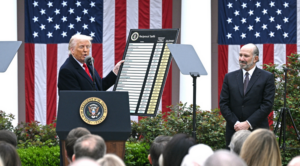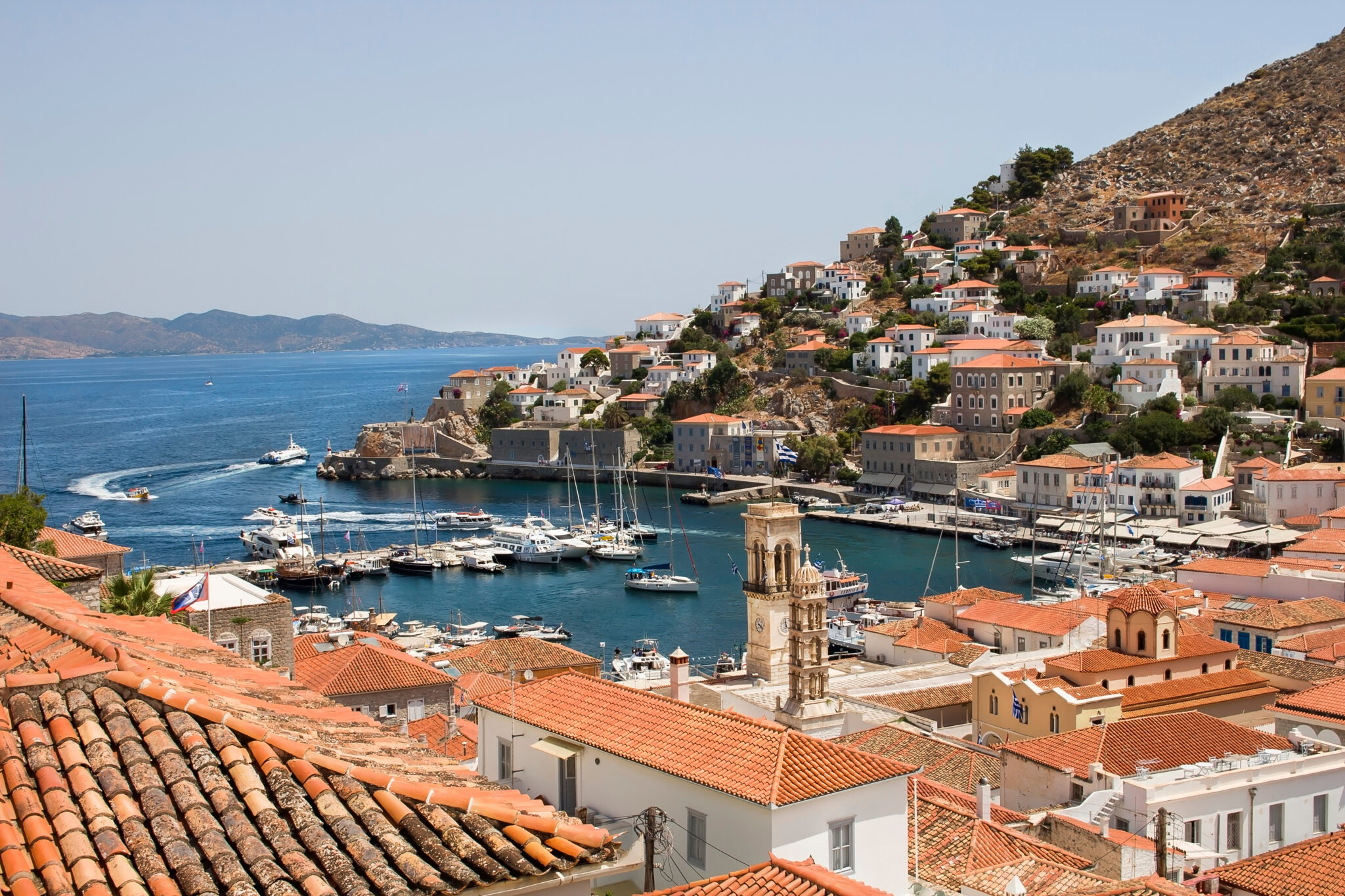If one were to leave – indeed a difficult task – the show that the US President likes to put on just before important announcements from the White House and focus mainly on the fact, then since yesterday the US has officially declared global economic war.
Donald Trump – we have written about it before – is many things to friends and enemies, but he is by no means inconsistent. His plan for tariffs on all those whom he and his own White House consider to be plotting against American sovereignty was not unknown but a clear pre-election commitment. Trump, after all, closed the 57 minutes of his speech yesterday by recalling this very element. Through Trump’s speech from the White House gardens, however, we may not have become much wiser regarding what the American President wants to achieve, but it is a given that there is no longer a “nebula” surrounding the question “who are the enemies of the United States?”.
Two and a half months since Trump took office in the Oval Office, the US President has imposed tariffs on Beijing that amount to 54% of every product, including raw materials, that China exports to the other side of the Atlantic. For Trump, despite repeated references to excellent relations with the President of China, the enemy is one and it is in Asia. The US tariffs on Beijing, combined with those imposed on its regional enemies, have one goal: to weaken it…
The “strange” tariffs on Japan and Taiwan
Within the long list of tariffs that the White House has made public, one would expect that the US’s key and geographically closest allies in Asia would receive a soft response from the Oval Office. This did not happen… Japan and Taiwan already have tariffs of 24 and 32% respectively… Trump, in his own way, chose to send a message first to Tokyo that a compromise must be found, especially in the area of Japanese vehicle exports to the US, and secondly to Taiwan, which a few hours before Trump’s announcements was once again blocked due to a live-fire military exercise by China, that there must be immediate contact for the microchips that ensure a significant advantage in yet another raging war, that of Artificial Intelligence. Trump likes to appear tough on everyone until he rings the phone in the Oval Office and reaches an agreement – commercial or otherwise – that suits him.
Isolationism that will cost dearly
We will have official answers from the rest of the planet regarding what will be the countermeasure to the American tariffs today, with the Union and the President of the Commission taking a position on the issue in the afternoon. However, both France and Spain have already announced summit meetings, as they are two of the Union countries that, in addition to cars, also export a significant part of their large agricultural production to the other side of the Atlantic. Trump’s move, which he himself may have called “Liberation Day”, will go down in history, but not as such. The President of the United States, who, in order to pass his decisions by presidential decree, once again declared the United States in a state of emergency within 70 days, has signed the starting point of a Global Economic War. A war that is rapidly driving the world’s largest economy into isolationism, a move that carries greater risks than gains.
Australia, which received tariffs in installments and the uninhabited islands
Studying the – by Trump standards – huge list of countries that were included in the long list of those that are now subject to American tariffs, one can see that Australia in particular has received tariffs twice… In the lists published by the White House, Australia officially has tariffs of the order of 10%, while the Heard and Mac Donald Islands, which are an Australian possession although very close to Antarctica, have tariffs of the same range… The question should be does this mean that for Australia the tariffs are the sum of 2, i.e. 20%, if it were not even more impressive that the Heard and Mac Donald Islands are uninhabited… It would also be interesting if there is data from the US Department of Finance and Commerce showing what Washington imports from these specific islands, which are completely covered in ice. It is worth noting that the sanctions list did not include countries such as Belarus, North Korea and Russia, and while one could say that there are no trade relations with North Korea and Belarus, it is clear that there is a significant – albeit damaged due to the war in Ukraine – trade balance with Russia (2.5 billion in 2024).
Ask me anything
Explore related questions





